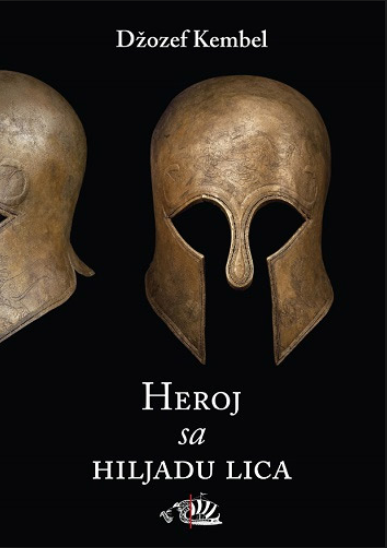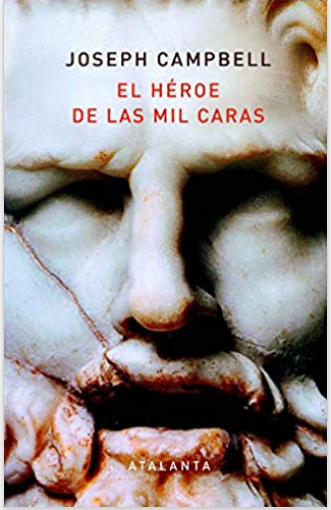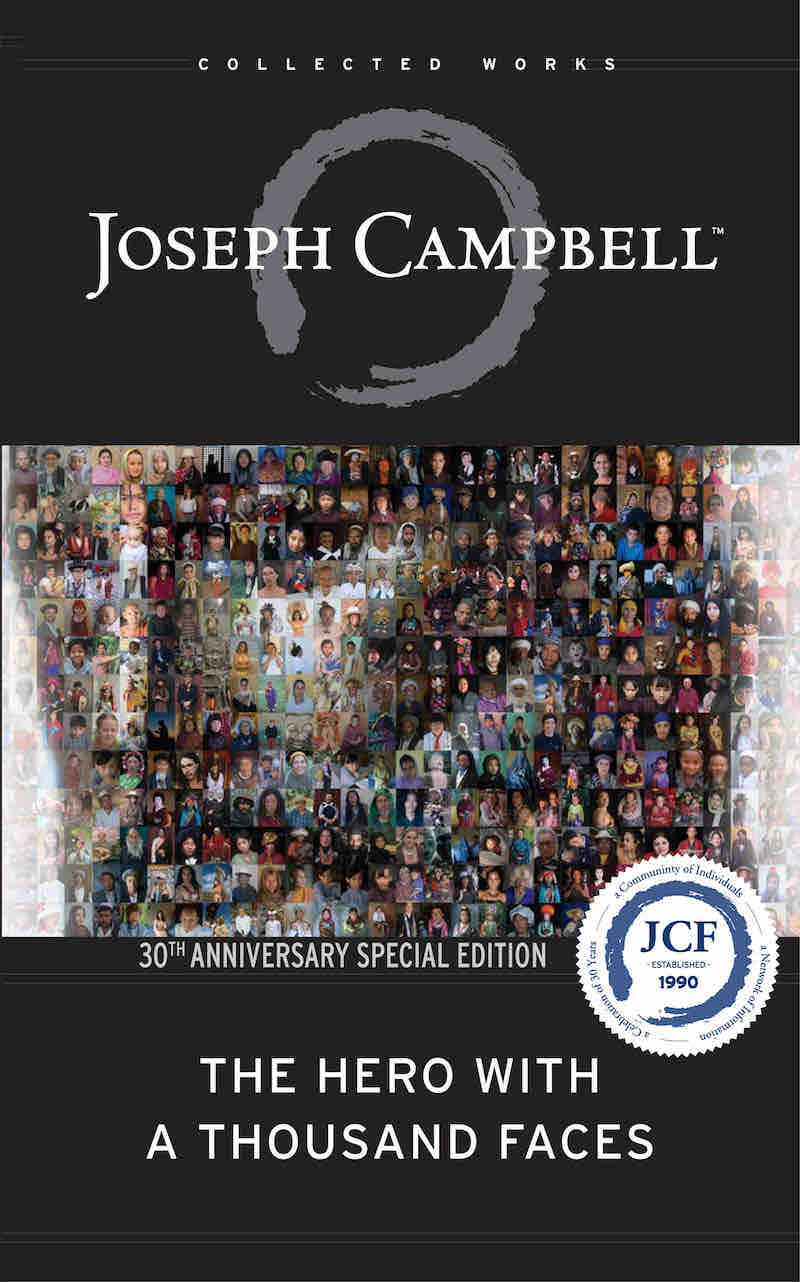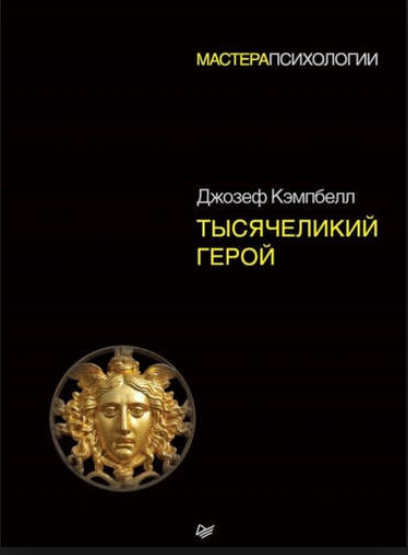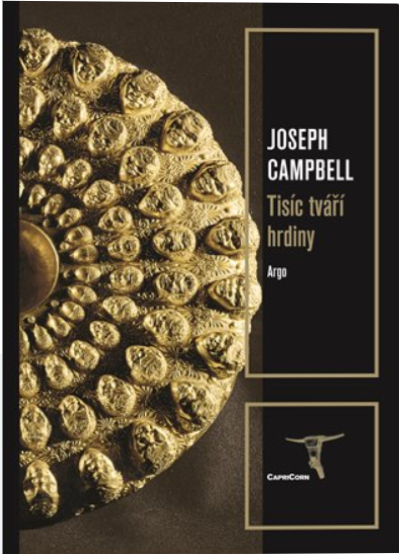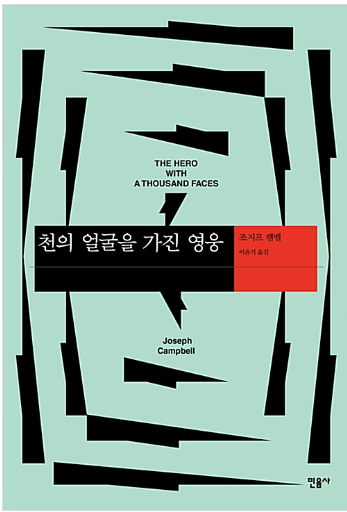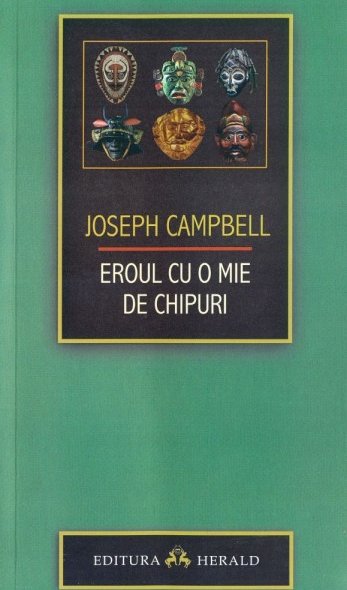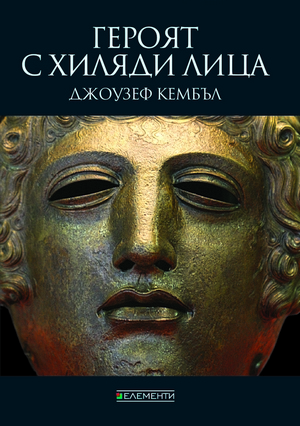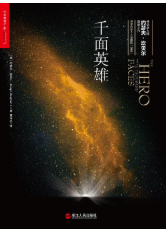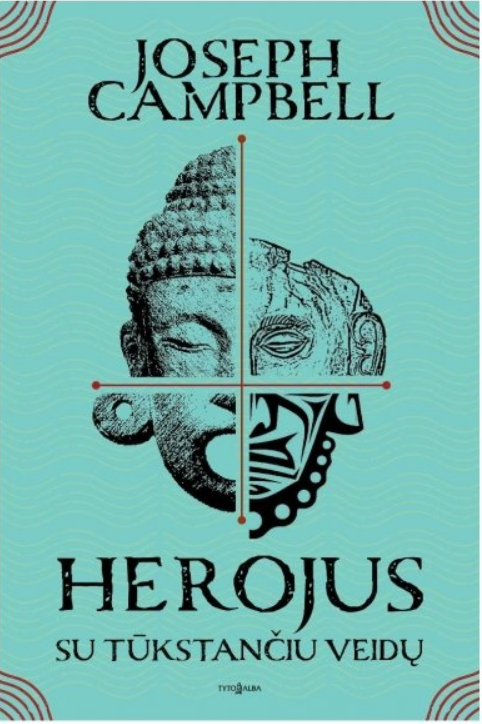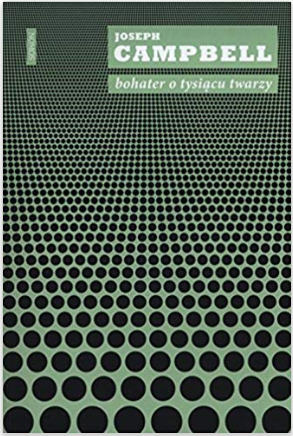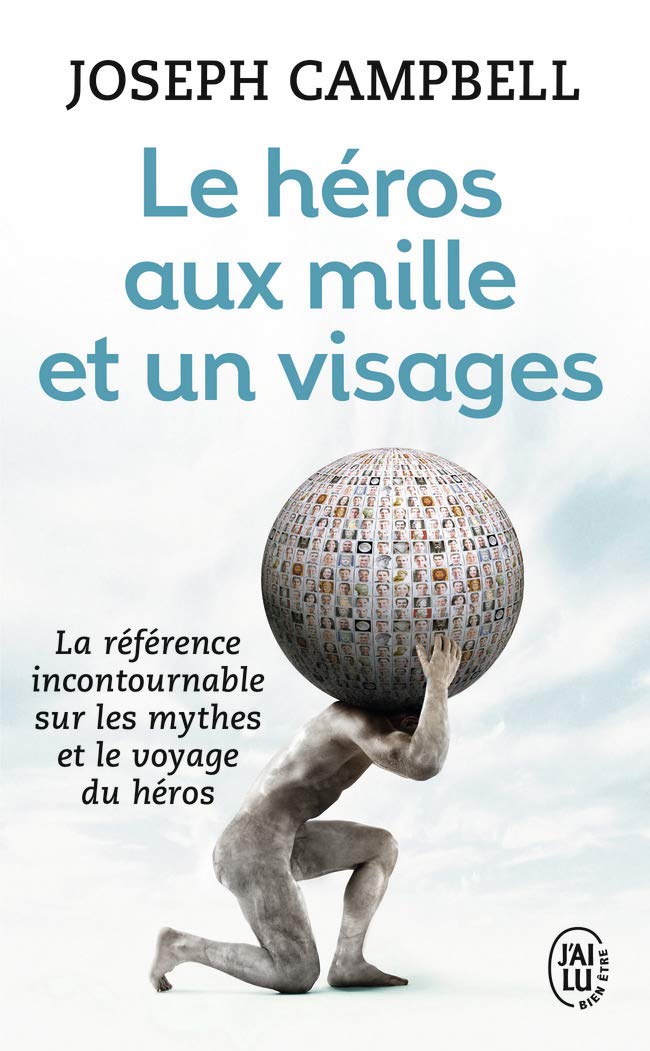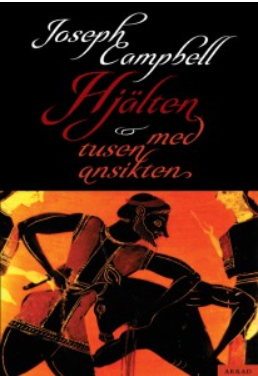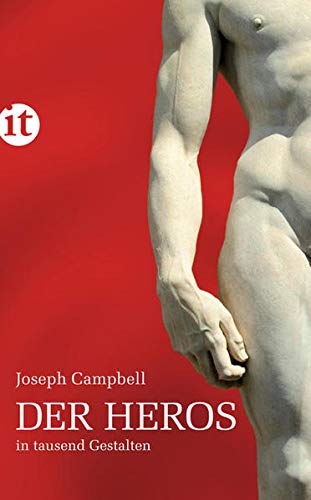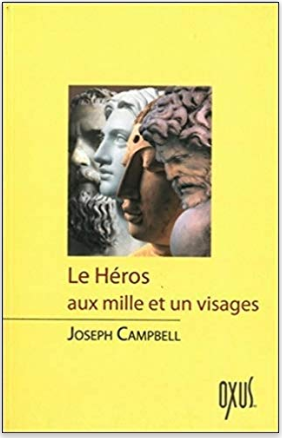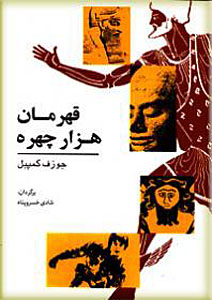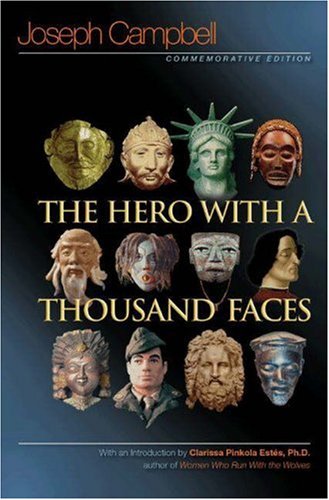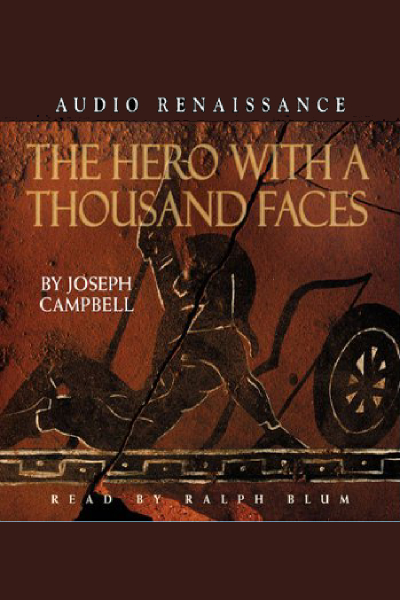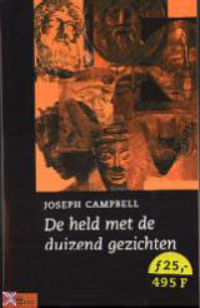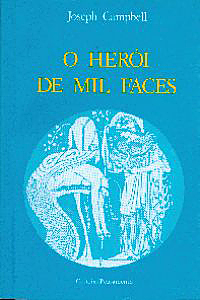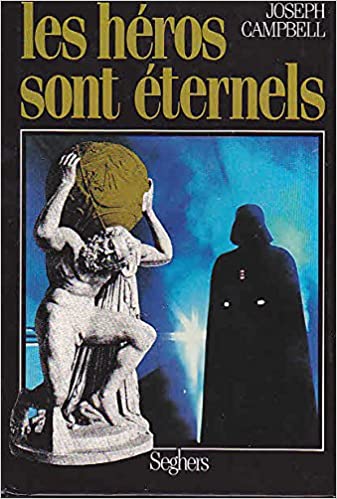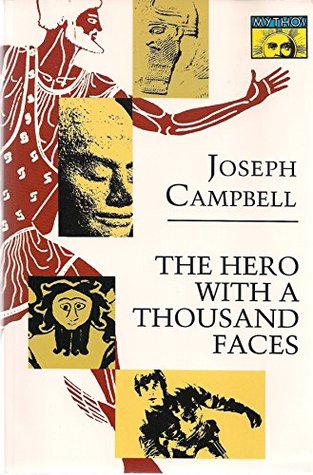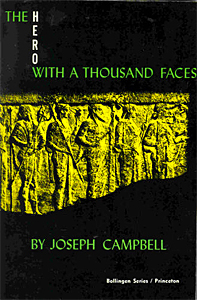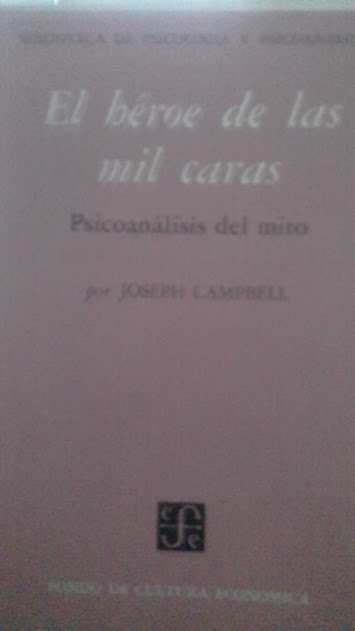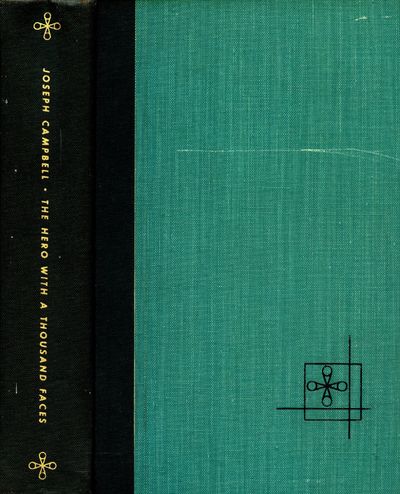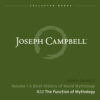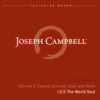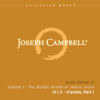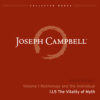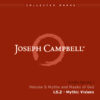
The Hero with a Thousand Faces
By Joseph Campbell
This title is part of the The Collected Works of Joseph Campbell series
This title is part of the Bollingen Series series
This seminal work has influenced millions of readers since it was originally published in 1949, bringing the insights of modern psychology together with Campbell’s revolutionary understanding of comparative mythology. In The Hero with a Thousand Faces, Campbell formulated the dual schemas of the Hero’s Journey, a universal motif of adventure and transformation that runs through all of humanity’s mythic traditions, and of the Cosmogonic Cycle, the stories of world-creation and -dissolution that have marked cultures around the world and across the centuries. Translated into over twenty languages, The Hero with a Thousand Faces has sold well over a million copies and continues to find new audiences among professors and students in fields ranging from the history of religion and anthropology to literature and film studies; among creative artists including authors, filmmakers, game designers and song writers; and among all of those interested in the basic human impulse to tell stories.
The magic of the sacraments (made effective through the passion of Jesus Christ, or by virtue of the meditations of the Buddha), the protective power of primitive amulets and charms, and the supernatural helpers of the myths and fairy tales of the world, are mankind’s assurances that the arrow, the flames, and the flood are not as brutal as they seem.[share]
“Every failure to cope with a life situation must be laid, in the end, to a restriction of consciousness” [share]
The modern hero, the modern individual who dares to heed the call and seek the mansion of that presence with whom it is our whole destiny to be atoned, cannot, indeed must not, wait for his community to cast off its slough of pride, fear, rationalized avarice, and sanctified misunderstanding . . . It is not society that is to guide and save the creative hero, but precisely the reverse. And so every one of us shares the supreme ordeal — carries the cross of the redeemer — not in the bright moments of his tribe’s great victories, but in the silences of his personal despair. [share]
Furthermore, we have not even to risk the adventure alone; for the heroes of all time have gone before us; the labyrinth is thoroughly known; we have only to follow the thread of the hero-path. [share]
The inflated ego of the tyrant is a curse to himself and his world—no matter how his affairs may seem to prosper. Self-terrorized, fear-haunted, alert at every hand to meet and battle back the anticipated aggressions of his environment, which are primarily the reflections of the uncontrollable impulses to acquisition within himself, the giant of self-achieved independence is the world’s messenger of disaster, even though, in his mind, he may entertain himself with humane intentions. [share]
[share]The archetypes to be discovered and assimilated are precisely those that have inspired, throughout the annals of human culture, the basic images of ritual, mythology, and vision.
The effect of the successful adventure of the hero is the unlocking and release again of the flow of life into the body of the world.[share]
How teach again, however, what has been taught correctly and incorrectly learned a thousand times, throughout the millennia of mankind’s prudent folly? That is the hero’s ultimate difficult task. How render back into light-world language the speech-defying pronouncements of the dark? How represent on a two-dimensional surface a three-dimensional form, or in a three-dimensional image a multi-dimensional meaning? How translate into terms of “yes” and “no” revelations that shatter into meaninglessness every attempt to define the pairs of opposites? How communicate to people who insist on the exclusive evidence of their senses the message of the all-generating void? [share]
The agony of breaking through personal limitations is the agony of spiritual growth. [share]
The whole sense of the ubiquitous myth of the hero’s passage is that it shall serve as a general pattern for men and women, wherever they may stand along the scale. Therefore it is formulated in the broadest terms. The individual has only to discover his own position with reference to this general human formula, and let it then assist him past his restricting walls. Who and where are his ogres? Those are the reflections of the unsolved enigmas of his own humanity. What are his ideals? Those are the symptoms of his grasp of life. [share]
The whole sense of the ubiquitous myth of the hero’s passage is that it shall serve as a general pattern for men and women, wherever they may stand along the scale. Therefore it is formulated in the broadest terms. The individual has only to discover his own position with reference to this general human formula, and let it then assist him past his restricting walls. [share]
The figure of the tyrant-monster is known to the mythologies, folk traditions, legends, and even nightmares of the world; and his characteristics are everywhere essentially the same… The inflated ego of the tyrant is a curse to himself and his world—no matter how his affairs may seem to prosper. Self-terrorized, fear-haunted, alert at every hand to meet and battle back the anticipated aggressions of his environment, which are primarily the reflections of the uncontrollable impulses to acquisition within himself, the giant of self-achieved independence is the world’s messenger of disaster, even though, in his mind, he may entertain himself with humane intentions. Wherever he sets his hand there is a cry (if not from the housetops, then—more miserably—within every heart): a cry for the redeeming hero, the carrier of the shining blade, whose blow, whose touch, whose existence, will liberate the land. [share]
The hero-deed is a continuous shattering of the crystallization of the moment. The cycle rolls: mythology focuses on the growing-point. [share]
Instead of clearing his own heart the zealot tries to clear the world. The laws of the City of God are applied only to his in-group (tribe, church, nation, class, or what not) while the fire of a perpetual holy war is hurled (with good conscience, and indeed a sense of pious service) against whatever uncircumcised, barbarian, heathen, “native,” or alien people happens to occupy the position of neighbor. The world is full of the resultant mutually contending bands: totem-, flag-, and party-worshipers. Even the so-called Christian nations— which are supposed to be following a “World” Redeemer—are better known to history for their colonial barbarity and internecine strife than for any practical display of that unconditioned love, synonymous with the effective conquest of ego, ego’s world, and ego’s tribal god, which was taught by their professed supreme Lord... [share]
For when a heart insists on its destiny, resisting the general blandishment, then the agony is great; so too the danger. Forces, however, will have been set in motion beyond the reckoning of the senses. Sequences of events from the corners of the world will draw gradually together, and miracles of coincidence bring the inevitable to pass. [share]
The wonder is that the characteristic efficacy to touch and inspire deep creative centers dwells in the smallest nursery fairy tale—as the flavor of the ocean is contained in a droplet or the whole mystery of life within the egg of a flea. For the symbols of mythology are not manufactured; they cannot be ordered, invented, or permanently suppressed. They are spontaneous productions of the psyche, and each bears within it, undamaged, the germ power of its source [share]
The wonder is that the characteristic efficacy to touch and inspire deep creative centers dwells in the smallest nursery fairy tale—as the flavor of the ocean is contained in a droplet or the whole mystery of life within the egg of a flea. [share]
The latest incarnation of Oedipus, the continued romance of Beauty and the Beast, stand this afternoon on the corner of 42nd Street and Fifth Avenue, waiting for the traffic light to change.
[share]
The Cosmic Dancer, declares Nietzsche, does not rest heavily in a single spot, but gaily, lightly, turns and leaps from one position to another. It is possible to speak from only one point at a time, but that does not invalidate the insights of the rest. [share]
It would not be too much to say that myth is the secret opening through which the inexhaustible energies of the cosmos pour into human cultural manifestation. Religion, philosphies, arts, the social forms of primitive and historic man, prime discoveries in science and technology, the very dreams that blister sleep, boil up from the basic, magic ring of myth [share]
The whole sense of the ubiquitous myth of the hero's passage is that it shall serve as a general pattern for men and women, wherever they may stand along the scale. Therefore it is formulated in the broadest terms. The individual has only to discover his own position with reference to this general human formula and let it then assist him past his restricting walls. Who and where are his ogres? Those are the reflections of the unresolved enigmas of his own humanity. What are his ideals? Those are the symptoms of his grasp of life [share]
Every failure to cope with a life situation must be laid, in the end, to a restriction of consciousness. Wars and temper tantrums are the makeshifts of ignorance; regrets are illuminations come too late. [share]
The goddess is red with the fire of life; the earth, the solar system, the galaxies of far-extending space all swell within her womb. For she is the world creatrix, ever mother, ever virgin. She encompasses the encompassing, nourishes the nourishing, and is the life of everything that lives. She is also the death of everything that dies. The whole round of existence is accomplished within her sway, from birth, through adolescence, maturity, and senescence, to the grave. She is the womb and the tomb: the sow that eats her farrow. Thus she unites the "good" and the "bad," exhibiting the two modes of the remembered mother. The devotee is expected to contemplate the two with equal equanimity. [share]
For just as the figments of a dream derive from the life energy of one dreamer, representing only fluid splittings and complications of that single force, so do all the forms of all the worlds, whether terrestrial or divine, reflect the universal force of a single inscrutable mystery: the power that constructs the atom and controls the orbit of the stars. That font of life is the core of the individual, and within himself he will find it—if he can tear the coverings away [share]
Blunders are not the merest chance. They are the results of suppressed desires and conflicts. They are ripples on the surface of life, produced by unsuspected springs. And these may be very deep—as deep as the soul itself. The blunder may amount to the opening of a destiny. [share]
Those who know, not only that the Everlasting lives in them, but that what they, and all things, really are is the Everlasting, dwell in the groves of the wish-fulfilling trees, drink the brew of immortality, and listen everywhere to the unheard music of eternal concord. These are the immortals. [share]
Religions, philosophies, arts, the social forms of primitive and historic man, prime discoveries in science and technology, the very dreams that blister sleep, boil up from the basic, magic ring of myth. [share]
Furthermore, we have not even to risk the adventure alone; for the heroes of all time have gone before us; the labyrinth is thoroughly known; we have only to follow the thread of the hero-path. And where we had thought to find an abomination, we shall find a god; where we had thought to slay another, we shall slay ourselves; where we had thought to travel outward, we shall come to the center of our own existence; where we had thought to be alone, we shall be with all the world. [share]
The hero adventures out of the land we know into darkness; there accomplishes his adventure or again is simply lost to us, imprisoned, or in danger; and his return is described as a coming back out of that yonder. Nevertheless—and here is a great key to the understanding of myth and symbol—the two kingdoms are actually one. The realm of the gods is a forgotten dimension of the world we know. And the exploration of that dimension, either willingly or unwillingly, is the whole sense of the deed of the hero. [share]
Only birth can conquer death—the birth, not of the old thing again, but of something new. Within the soul, within the body social, there must be—if we are to experience long survival—a continuous "recurrence of birth" (palingenesia) to nullify the unremitting recurrences of death. [share]
In a word: the first work of the hero is to retreat from the world scene of secondary effects to those causal zones of the psyche where the difficulties really reside, and there to clarify the difficulties, eradicate them in his own case (i.e., give battle to the nursery demons of his local culture) and break through to the undistorted, direct experience and assimilation of what C. G. Jung has called "the archetypal images." [share]
Tragedy is the shattering of forms and of our attachment to them; comedy the wild and careless, inexhaustible joy of life invincible [together] they constitute the totality of the revelation that is life, and which the individual must know and love if he is to be purged of the contagion of sin and death. [share]
Wherever the poetry of myth is interpreted as biography, history, or science, it is killed. [share]
The universal doctrine teaches that all the visible structures of the world ... are the effects of a ubiquitous power out of which they rise, which supports and fills them during their manifestation, and back into which they must ultimately dissolve. This is the power known to science as energy, to the Melanesians as mana, to the Sioux Indians as wakonda, the Hindus as Shakti, and the Christians as the power of God. [share]
The modern hero, the modern individual who dares to heed the call and seek the mansion of that presence with whom it is our whole destiny to be atoned, cannot, indeed must not, wait for his community to cast off its slough of pride, fear, rationalized avarice, and sanctified misunderstanding. [share]
The way to become human is to learn to recognize the lineaments of God in all of the wonderful modulations of the face of man. [share]
Wherever the hero may wander, whatever he may do, he is ever in the presence of his own essence — for he has the perfected eye to see. There is no separateness. [share]
No tribal rite has yet been recorded which attempts to keep winter from descending; on the contrary: the rites all prepare the community to endure, together with the rest of nature, the season of the terrible cold. [share]
For when scrutinized in terms not of what it is but of how it functions, of how it has served mankind in the past, of how it may serve today, mythology shows itself to be as amenable as life itself to the obsessions and requirements of the individual, the race, the age. [share]
The tribal ceremonies of birth, initiation, marriage, burial, installation, and so forth, serve to translate the individual’s life-crises and life-deeds into classic, impersonal forms. They disclose him to himself, not as this personality or that, but as the warrior, the bride, the widow, the priest, the chieftain; at the same time rehearsing for the rest of the community the old lesson of the archetypal stages. [share]
It is not only that there is no hiding place for the gods from the searching telescope and microscope; there is no such society any more as the gods once supported. [share]
The modern hero-deed must be that of questing to bring to light again the lost Atlantis of the co-ordinated soul. [share]
For the symbols of mythology are not manufactured; they cannot be ordered, invented, or permanently suppressed. They are the spontaneous productions of the psyche, and each bears within it, undamaged, the germ power of its source. [share]
Regrets are illuminations come too late. [share]
The happy ending of the fairy tale, the myth, and the divine comedy of the soul, is to be read, not as a contradiction, but as a transcendence of the universal tragedy of man. [share]
Filter:
Sort:


